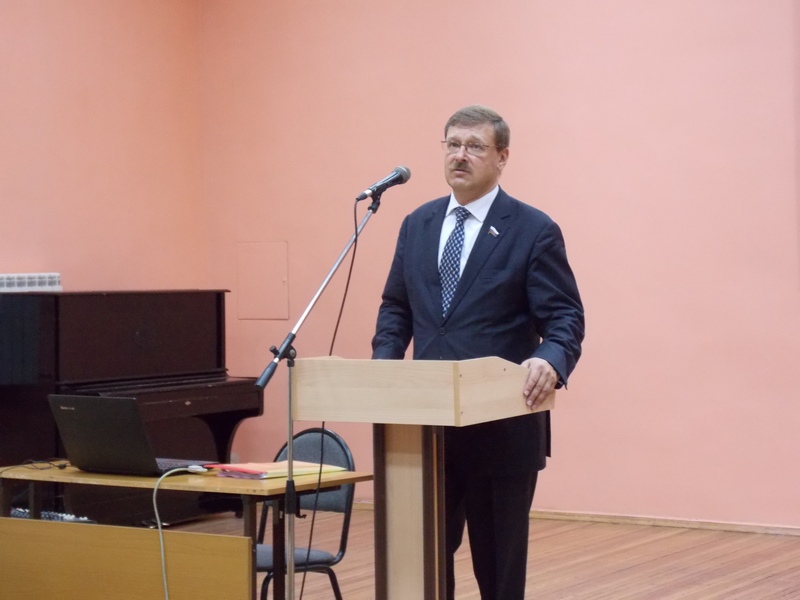On September 23 Konstantin Kosachyov, the head of the Federation Council Committee for International Affairs, had a meeting with ISU students. Senior students of the International Institute of Economics and Linguistics and History faculty were invited to listen to the lecture, ask questions and discuss the most prominent problems of world politics and contemporary international relations.
At the beginning of the meeting Alexander Schmidt, the Vice Rector for Science and International Affairs, introduced the guest speaker as “the main expert of the Russian law-making body in international affairs”.
In his speech Konstantin Kosachyov told about contemporary world politics, cooperation between Russia and China and world conflicts.
ISU students asked questions concerning the war in Syria, the decrease in Russia’s GDP, Russian-Chinese relations, and government’s support for Universities that train foreign students. Alexander Shcherbakov, a 2-year student of “International relations” program, shared his impressions:
— My question was about the development of the so-called “Eastern” Vector in Russian foreign policy. For a long time Russia has put enormous efforts to develop diplomatic and economic links with European countries. In his answer to my question Mr. Kosachyov made an emphasis upon the fact that the shift in Russian foreign policy priorities can be explained by economic framework. Although the Russians have more cultural things in common with the Europeans, Russia can take advantage of cooperation with Eastern countries as their economies develop in a very rapid way.
At the end of the meeting Konstantin Kosachyov mentioned that such meetings could be very important for students specializing in political science.
















